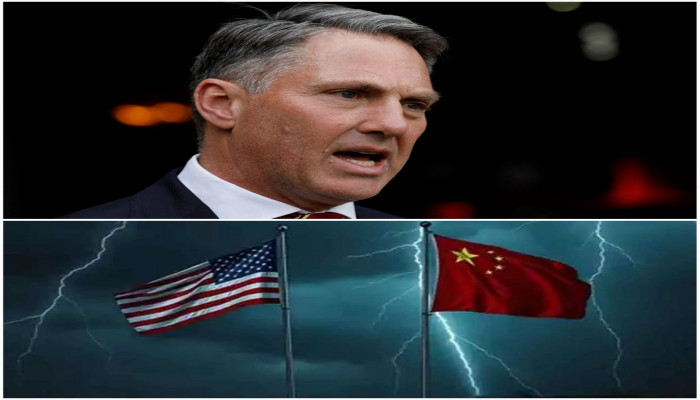Australia turns down China’s offer against U.S. tariffs, plans to diversify trade partnerships further
- In Reports
- 06:25 PM, Apr 10, 2025
- Myind Staff
On Thursday, Australia turned down China’s offer to join forces against U.S. tariffs, stating that it would focus on diversifying its trade partnerships and reducing its dependence on China, even though China remains its biggest trading partner. In response to the Chinese ambassador's suggestion for countries to "join hands" on trade, Deputy Prime Minister Richard Marles told Sky News, "We are not going to be holding hands with China in respect of any contest that is going on in the world." "We are not doing that. What we are doing is pursuing Australia's national interests and diversifying our trade around the world."
He stated that Australia plans to boost its economic strength by deepening trade relationships with the European Union, Indonesia, India, the UK, and the Middle East. Meanwhile, in an opinion piece published in The Age, China’s ambassador to Australia, Xiao Qian, called Canberra to work with Beijing to support and protect the global multilateral trading system.
"Under the new circumstances, China stands ready to join hands with Australia and the international community to jointly respond to the changes of the world," Xiao stated.
In a surprising shift on Wednesday, U.S. President Donald Trump announced that he would temporarily ease high tariffs on many countries but would keep up the pressure on China, raising its tariff rate from 104% to 125%. This move deepens the ongoing trade war between the world’s two biggest economies. The decision could have consequences for Australia, sending nearly a third of its exports to China, while shipments to the U.S. make up less than 5% of its total exports.
Australia’s central bank has raised concerns that the ongoing trade tensions, especially the uncertainty around tariffs between the U.S. and other major economies, could discourage businesses from investing and make households more cautious with their spending.
Meanwhile, Trump has slapped a 10% tariff on Australian imports, the lowest rate among his broader set of reciprocal tariffs on all goods entering the U.S.
Prime Minister Anthony Albanese stated that although the duty imposed on Australia, a major U.S. security partner in the Indo-Pacific, has "no basis in logic", his government has no plans to respond with countermeasures.







Comments